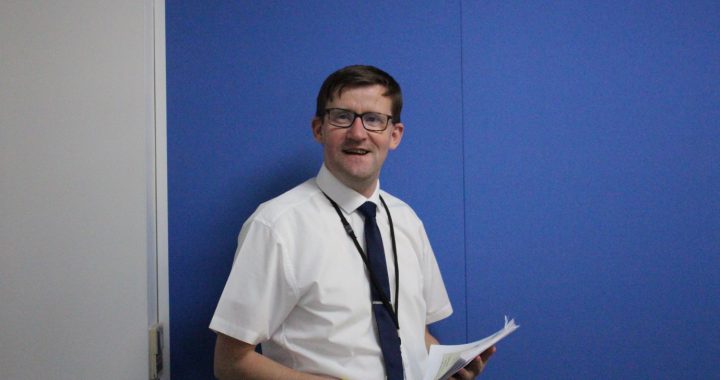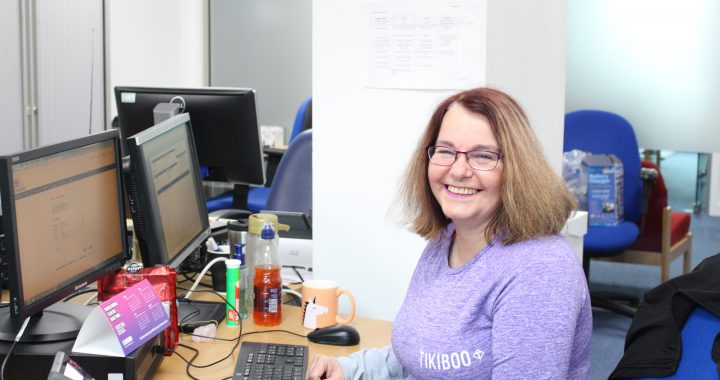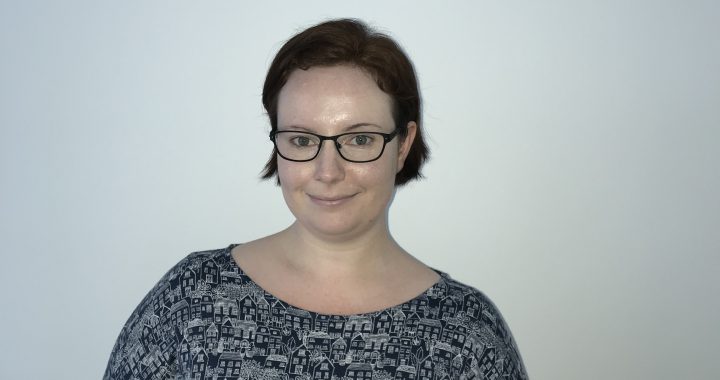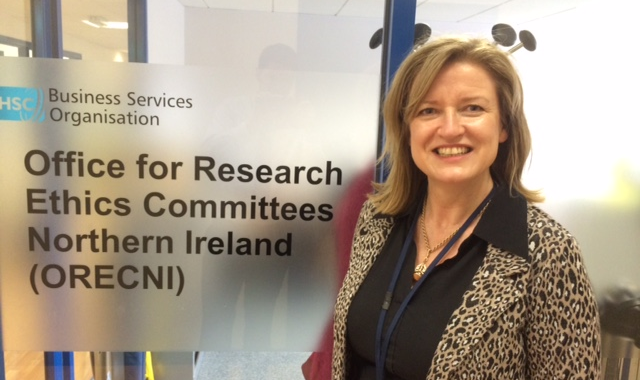
My Story – Diane
My name is Diane Marks and I am totally blind with a wonderful guide dog called Morris. I am currently working as part time admin support for the Equality Unit within the Business Services Organisation (BSO).
I acquired this role by being involved in the RNIB Eye Work too program and the Disability Placement Scheme run by the BSO and Supported Employment Solutions.
I had moved to Northern Ireland five years ago from England and throughout my time of living in the UK I have always encountered some kind of discrimination whether overt or blatant when applying for work. I trained as a physiotherapist at the University of Brighton and even when I qualified every NHS hospital recruitment drive I approached was met with an overt form of discrimination. When I then went on to work for a rehab case company the blatant discrimination was very obvious as it was intended to make me quit due to ensuring that the reasonable adjustments were not in place and if they were, they were not explained to me. I was left to flounder on my own.
When I joined the Disability Placement Scheme I was made to feel like a real member of the team. My colleagues couldn’t do more and if they were unsure of something they just asked me which made so much difference. To be able to explain myself and my needs regarding reasonable adjustments and also having the support of the RNIB and my Employment Support Officer ensured that when I finally entered the job environment I was able to make a positive impact right from the start. My colleagues are amazing and have included me in everything. They have used my passion for equality and inclusivity and have allowed me to give my lived experience and input into any piece of work they have been doing.
My role within the Equality Unit is to be the admin support for my colleagues i.e. answering phones, keeping an eye on the shared team inbox, working on pieces of work like our Disability Awareness Days, organizing room bookings and catering for events taking place, keeping on top of set daily, weekly and monthly pieces of work that need to be monitored.
My colleagues have treated me like an equal member of the team and have not given me any preferential treatment which has made me feel like an equal and valuable member of the working community.
I also received fantastic real on the job training for interview techniques when it came to interviewing for the Band 3 waiting list for full time recruitment within the BSO. It was only due to this training that I was able to confidently go forward for the interview and get to the point where I have now got a full time permanent job as a band 3 admin support within the Health and Social Care Board.
I feel that I’ve brought my passion for inclusivity and equality to the role. I continued to work from home throughout Covid within the equality unit with some additional adjustments such as working from home and remote access. I feel that my honesty, professionalism and hard work will stand me in good stead and this is only reinforced with all the work I’ve done for the Equality Unit at the BSO. They have given me the increased confidence to know that I can do anything I put my mind to with the right kind of support. I have hopefully been able to smash some myths around sight loss and assistance dogs. My guide dog, Morris, has become a very loved member of the staff within the BSO as he always goes and says hello to everybody who comes into the office. Explaining from the start the do’s and don’ts with regards to my dog has helped to settle a lot of nerves from the staff’s point of view. They accepted him as one of their own and he has become an unofficial mascot.
Apart from the part time work I do for the Equality Unit I am still involved in my disability activism although it is all done via zoom or Microsoft teams these days. I play sound tennis and still broadcast online for an internet radio station. I work voluntarily as a personal assistant for the CEO of the internet radio group.






